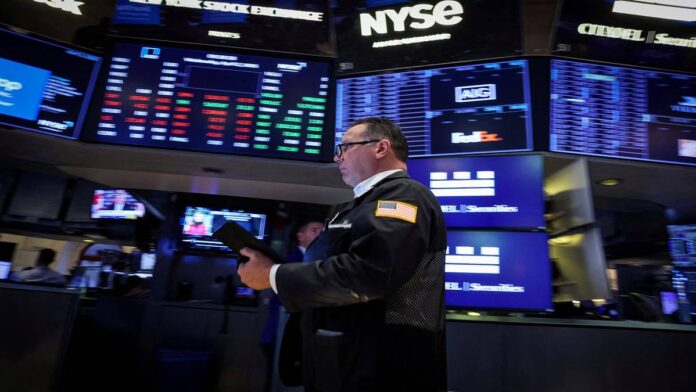Wall Street nosedived for a second straight day on Friday, confirming the Nasdaq Composite was in a bear market and the Dow Jones Industrial Average was in a correction, as an escalating global trade war spurred the biggest losses since the pandemic. The Dow Jones Industrial Average, S&P 500 and the Nasdaq Composite posted their largest two-day declines since the emerging coronavirus caused global panic during U.S. President Donald Trump‘s first term. For Thursday and Friday, the Dow was down 9.3%, the S&P 500 10.5% and the Nasdaq 11.4%.
Fallout from Trump’s sweeping tariffs stoked fears of a global recession, wiping trillions of dollars of value from U.S. companies. Highlighting growing panic among investors, the CBOE Volatility Index, or Wall Street’s fear gauge, closed at its highest level since April 2020. Since late on Wednesday, when Trump boosted tariff barriers to their highest level in more than a century, investors have dumped stocks, fearing both the new U.S. economic reality and also how U.S. trading partners might retaliate by steepening their own trade barriers.
ALSO READUS markets meltdown wiped out $5trillion on Trump’s tariffs
A record-breaking number of shares were traded on Friday, with volume on U.S. exchanges around 26.79 billion shares, beating the previous high of 24.48 billion shares traded on January 27, 2021.The Nasdaq slid on Friday 962.82 points, or 5.82%, to 15,587.79, confirming the tech-heavy index was in a bear market compared to its record closing high of 20,173.89 on December 16.Meanwhile, the Dow Jones Industrial Average fell 2,231.07 points, or 5.50%, to 38,314.86 points, confirming a correction to its record closing high of 45,014.04 on December 4.
The S&P 500 lost 322.44 points, or 5.97%, to close at 5,074.08 points, its lowest finish in 11 months. “Right now, how bad it gets depends on how committed the administration is to this set of policies which, clearly, the market is voting against,” said Steve Sosnick, chief strategist at Interactive Brokers.
ALSO READJP Morgan raises global recession risk to 60% after Trump tariffs, markets in freefall as China retaliates
Global governments began reacting to Trump’s tariff announcement on Friday, further undermining investor sentiment that a global recession could be averted. JP Morgan said it was forecasting a 60% chance of the global economy entering a recession by year-end,
» Read More


